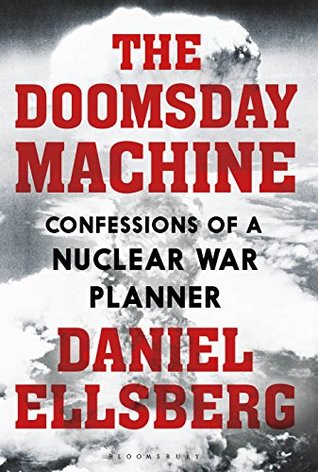More on this book
Community
Kindle Notes & Highlights
Read between
January 13 - January 14, 2018
‘Command and control! Command and control! What’s that? It’s telling the fighting man what to do, that’s what it is. And that’s a job for the professional soldier. They talk about the president exercising command and control. What is the president?’ He spit out the ‘p’ in ‘president.’ ‘A politician.’ ‘What does a politician know about war?’ He dwelled on w-a-a-h-r. ‘Who needs the president if there’s a w-a-a-h-r? Nobody! All we need him for is to tell us that there’s a war. [Not that Curtis LeMay needed a president for that.] We are professional soldiers. We’ll take care of the rest.’ ” (pp.
...more
Americans had built this machine, knowing, it turned out, that it would kill more than half a billion people if it were turned on (and they were unhesitant in reporting this to the president). Humans like that would not fail to pull the switch if ordered by a president—or, as I’ve discussed earlier, possibly on the order of a superior other than the president. And the presidents themselves? A few months prior, Dwight Eisenhower had secretly endorsed the blueprints of this multi-genocide machine. He had furthermore demanded, largely for budgetary reasons, that there be no other plan for
...more
In the last year of the Cold War,75 Herbert York cited Bundy’s statement in a talk at Lawrence Livermore National Laboratory (of which he had been the first director), where, along with Los Alamos, all U.S. nuclear weapons had been designed. York posed the question, how many nuclear weapons are needed to deter an adversary rational enough to be deterred? Concurring with Bundy’s judgment—as who would not?—he answered his question, “somewhere in the range of 1, 10, or 100 … closer to 1 than it is to 100.”
Herman Kahn had argued that to make a credible first-strike threat, we had to be prepared to show that we would survive a retaliatory strike with our fallout shelters, or at least believe that we would. To do that you had to act as if you believed—as Kahn did—that shelters would make all the difference, and you had to encourage people to build them. I remember hearing at the time that McGeorge Bundy had said, “We’re going to do this not for the Herman Kahn reasons,” by which he meant that we weren’t making a first-strike threat or counting on the shelters to work;
In other words, 1962 was the last year the Soviets could hope to achieve a disarming first-strike capability with moderate to high confidence.
Four missiles in 1960–61 was strategically equivalent to zero, in terms of such an aim. They could have hit Washington and SAC headquarters, but that would neither have disarmed nor paralyzed SAC’s ability to annihilate them in response. The Soviets could hit a city or two, striking first. Suicidally. They had no second-strike missile capability at all against the continental United States. Their four operational missiles, at one fixed site aboveground, were thin-skinned and liquid-fueled, with highly volatile fuel that couldn’t be stored and that would take hours to load. A single U.S.
...more
Two of the top Soviet experts at RAND were Arnold Horelick—later head of Soviet estimates at the CIA—and Myron Rush. (Rush’s claim to fame was that he had, almost alone, predicted the rise of Khrushchev to top power from studying the sequence of photographs of Kremlin officials gathered together for parades in Red Square or other formal occasions.
By asking Gilpatric to make this speech93 [sic], Kennedy may have strengthened his own domestic political standing and reassured American allies, but he also provocatively undermined Khrushchev’s position in the Kremlin and in the world. The Chairman’s entire domestic and foreign strategy was based on creating the illusion of Soviet nuclear might. Now, as the world learned that the emperor had no clothes, Khrushchev must have imagined that the Third World and perhaps even Soviet allies, previously mesmerized by Soviet power, might begin turning away from Moscow.… Khrushchev had fashioned an
...more
(Kennedy had chosen the word “quarantine” precisely not to admit an analogy to the Soviets’ blockade of Berlin in 1948, which we had always described as illegal),


